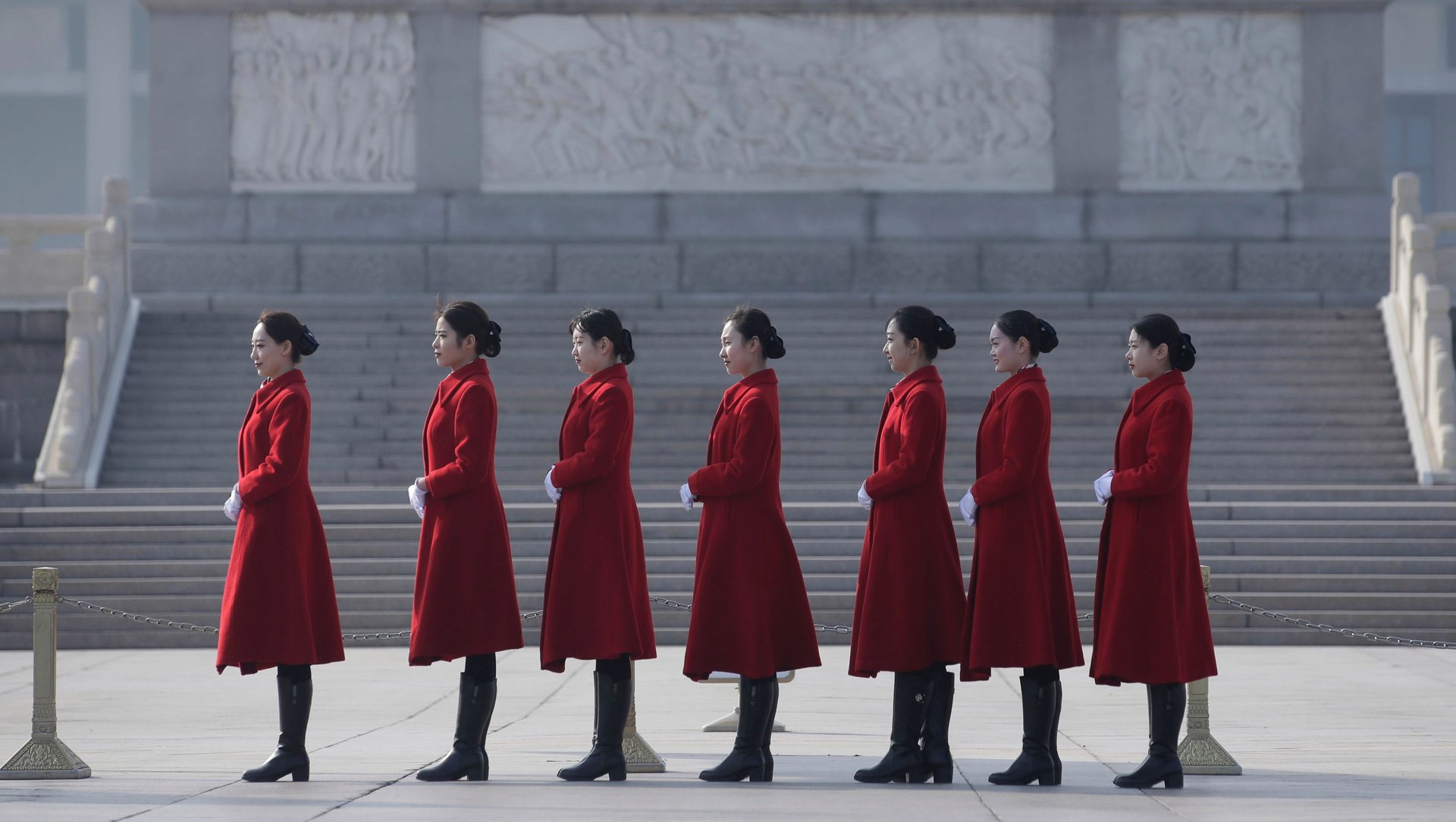China’s annual political meeting “inspired” a rap song about “Chinese miracles”
Who knew that China’s National People’s Congress had so much street cred? The annual Chinese legislative gathering, often referred to as the Two Sessions, since it also involves a meeting of the Chinese People’s Political Consultative Conference advisory body, serves as rapper Su Han’s muse in a new music video posted by state media agency Xinhua over the weekend.


Who knew that China’s National People’s Congress had so much street cred? The annual Chinese legislative gathering, often referred to as the Two Sessions, since it also involves a meeting of the Chinese People’s Political Consultative Conference advisory body, serves as rapper Su Han’s muse in a new music video posted by state media agency Xinhua over the weekend.
Titled “’Two Sessions’: To the World From China” the clip begins with dramatic camera pans over Beijing’s Great Hall of the People, where members of the NPC will gather from tomorrow (March 5). That’s interspersed with Su—who first burst onto the propaganda hip-hop scene three years ago with a Mandarin song promoting Tsinghua University—rhyming in English about his “elation from inspiration writing a compliment song for the nation.”
The song touches mostly on China’s recent scientific achievements—“science’s the air, bears the weight of desire” go the lyrics—like its historic landing on the moon’s far side in January, the launch of the first quantum communications satellite, and cloned monkeys. It also works in mentions of poverty alleviation, the environment, and a Star Wars reference.
Josh Feola, culture editor of China-focused media site RADII, calls Su’s rhymes “hilariously awkward”—but then, what really rhymes with “supercomputer”? However, such quibbles are beside the point in Feola’s view: “What’s more interesting is trying to figure out who the target audience for this is.”
Rather than catering to actual rap fans, trend-chasing youngsters or overseas English speakers, the clip was likely made with a different aim, at least according to Feola. He explains: “My assumption is that this English-language rap video with borderline nonsensical lyrics is actually geared towards a Chinese audience that’s not very familiar with hip-hop,” said Feola, to signal that the annual gathering—where the government reports on work carried out in the previous year and sets economic targets for the current year—is an event “with global recognition and contemporary cultural relevance.”
The video is by no means China’s first instance of wacky propaganda, as its promotional efforts change in the online era. Last week, a music video featuring children singing about beleaguered telecom giant Huawei’s “beauty,” made the rounds on social media in China. Huawei, who along with its chief financial officer has been charged with multiple crimes by the US, told Quartz it was not involved with the video.
There have also been state-backed raps before, such as a 2015 animation praising president Xi Jinping, a 2016 Communist Youth League song responding to common criticisms of China, and an animated rap song released for last year’s Two Sessions, just months after the government cracked down on actual local rappers who’ve experienced a new-found love for the genre in China in recent years. Xinhua itself has in the past dismissed such music as “low-taste.”
The video might seem humorous to some viewers—but the growing use of propaganda hip-hop is most likely no laughing matter to devoted Chinese MCs.